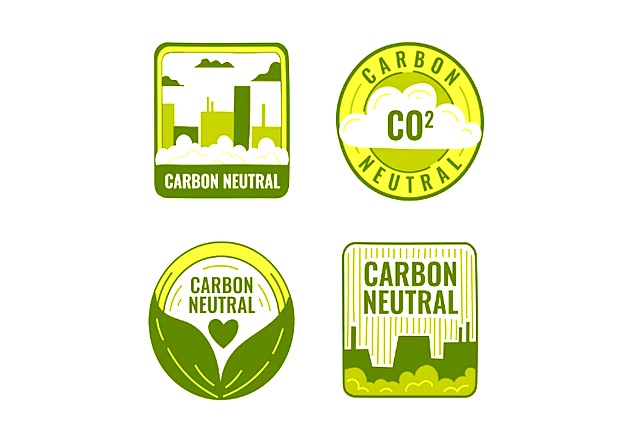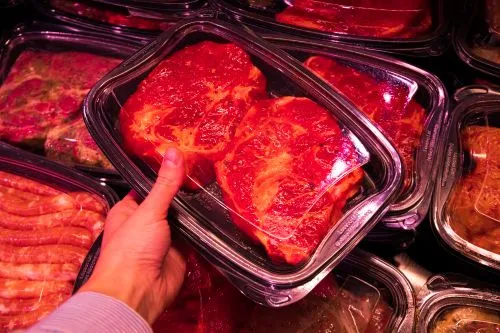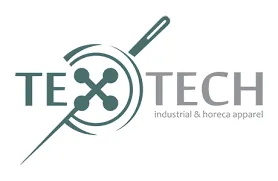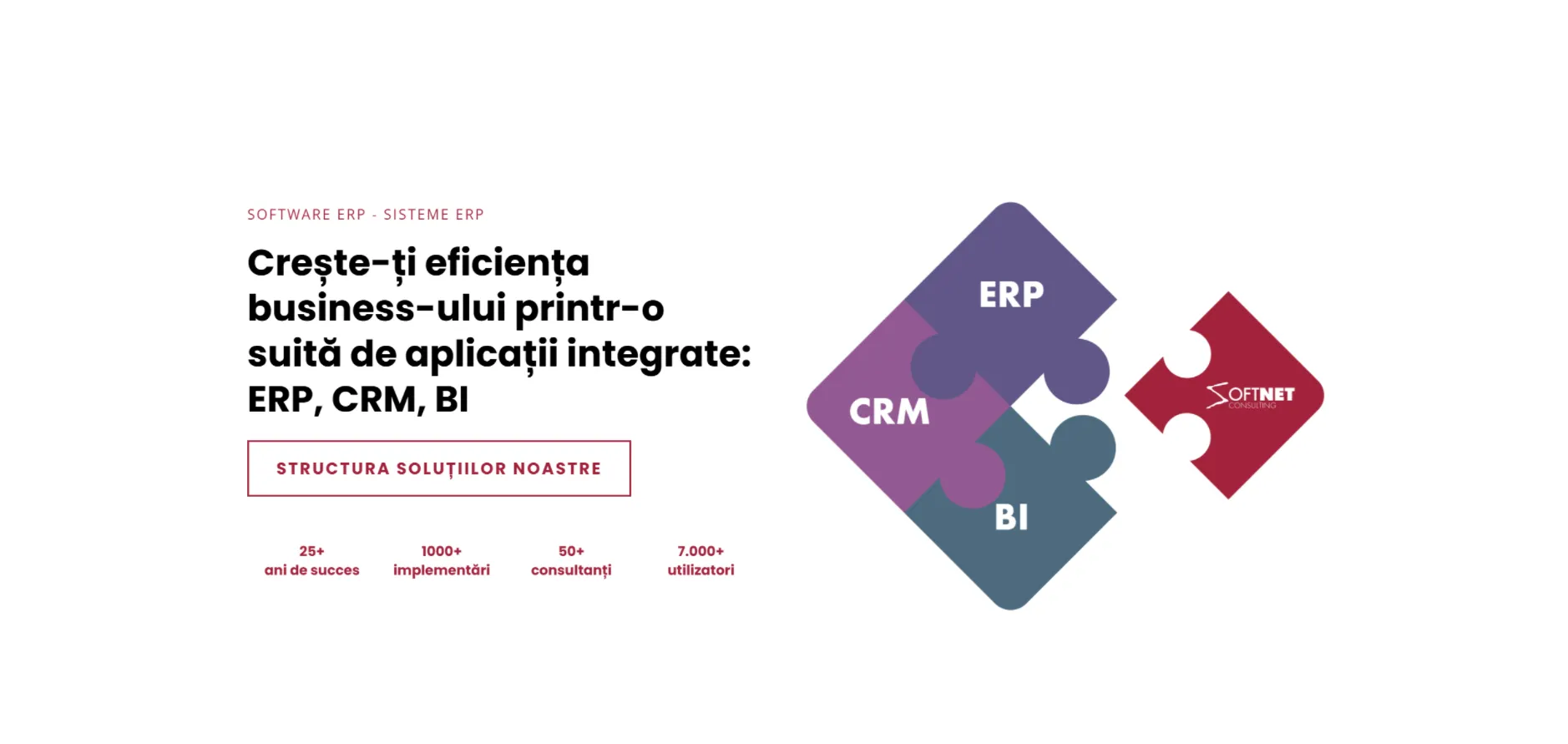889

As consumers become increasingly aware of the impact of the food system on the planet, environmental claims on food and beverage packaging are becoming more common. While consumer information can play a role in guiding consumers towards more sustainable options, some environmental claims, such as "carbon-neutral," can confuse and mislead buyers when purchasing food and beverages in supermarkets. The current legislative framework only allows authorities or courts to intervene once harm has been done and consumers have already been misled. First and foremost, consumers should not be exposed to such deceptive practices, which is why the European Consumer Organisation (BEUC) calls for the banning of these claims in the EU, as outlined in the document "A climate-neutral food basket. Too good to be true?"
Are we painting the crow? No, we are "greenwashing" the food
As the consequences of the climate crisis become increasingly evident, consumers are becoming more concerned about the environmental impact of their purchases. Consequently, many of them are now willing and eager to buy more sustainable products.
A 2019 BEUC survey showed that over half of European consumers say sustainability concerns have some (42.6%) or a significant (16.6%) influence on their food choices. Two-thirds are willing to change their eating habits for the environment, but they struggle to translate intent into action, partly due to the challenge of identifying sustainable options in stores.
In response, companies have reacted, and the number of claims promoting a brand or the alleged eco-accreditations of a product on the market has exploded, with the food sector being no exception.
However, as environmental claims have become more common, so has the practice of "greenwashing," where claims have more to do with marketing than with genuine environmental actions.
Handling consumers
While transitioning to a more sustainable food system should not and cannot rely solely on individual consumer choices, food information is a tool that can help consumers navigate towards more sustainable options, provided that the information is reliable, meaningful, and easily understandable.
One type of environmental claim that has become extremely common on food shelves in recent years is those that refer to the climate impact of food products, suggesting that the products are "carbon-neutral," "CO2-neutral," or "climate-neutral." This practice is scientifically inaccurate and misleading to consumers, and therefore, BEUC calls for the banning of these claims.
Together with the members of BEUC, several examples of these misleading claims have been collected throughout Europe to highlight their proliferation in the food sector and the issues they raise for consumer confusion. As a result, BEUC calls on the EU to prohibit the use of carbon-neutral claims for all food and beverage products for the following reasons:
- It is scientifically inaccurate to describe any food product as "carbon-neutral." The production of all food and beverages will always involve carbon emissions (or other greenhouse gases such as methane). Carbon neutrality is a concept that only makes sense at a global level.
- The use of carbon offsetting, which underlies (partially or entirely) most of these claims, is a highly controversial practice that does not guarantee carbon lock-in for the future. This claim allows companies to give the impression that they are taking immediate serious action on their climate impact when, in reality, they are delaying it for many years by opting for offsetting, which is easier and cheaper than reducing emissions from their current activities.
- These claims are deceptive to consumers. Not only do they give a false impression that the products are a good choice for the climate, but many consumers would also be disappointed to discover that such claims do not equate to a significant reduction in emissions-intensive activities.
- Even when complaints about these misleading claims are successful in national authorities, the process is so slow that the marketing impact of climate greenwashing will already be made.
- By pushing consumers to opt for seemingly carbon-neutral options, climate-neutral claims on food can discourage them from making changes in their diets (e.g., consuming a more plant-based diet), which could have a much more significant impact on the climate as a whole.
What is carbon offsetting?
"Carbon neutral", "carbon positive", "carbon neutral certified"... the list goes on. These claims are now a common sight on supermarket shelves. Less well known, however, are the measures food companies use to justify such positive-sounding claims.
Carbon offsetting is the practice behind many food companies' claims of carbon neutrality. It allows businesses to pay, often cheaply, for carbon credits from offset projects to offset their own carbon-emitting activities in order to claim carbon neutrality. Each credit represents one ton of offset carbon emissions.
These carbon offset schemes often rely on tree planting projects in developing countries to generate such credits. However, while the carbon effects of companies buying credits are certain and long-term, the offsetting effects of nature-based offset projects are not guaranteed.
Scientific inaccuracy
Carbon neutral claims and their derivatives can give consumers the misleading impression that the products they appear on do not have a negative impact on the climate. From a scientific perspective, however, such a concept is impossible to achieve at the product or company level, because carbon neutrality, i.e. the balance between carbon emissions from human activity and the removal of the same amounts of greenhouse gases from the atmosphere, makes sense only globally.
Carbon offsetting considers equivalent amounts of carbon emitted to that which is sequestered. This "burn now, pay later" approach fails to address the lifetime of emitted carbon, which can remain for hundreds of years, while carbon offset schemes, which are often based on forestry projects, do not they have no guarantee of permanence.
Logging, as well as droughts and wildfires (increasingly likely as the effects of climate change become clear), can rapidly eradicate fragile forests planted as offset projects, while the carbon they are meant to offset remains in atmosphere for centuries.
The same is true of compensation schemes based on carbon farming programs, whereby farmers are paid to implement certain agricultural practices that are supposed to sequester carbon in their soils: once the program ends, the land can be converted in a parking lot or plow, releasing the carbon that had been sequestered.
A temporal gap
There is also a time lag between the time of greenhouse gas emissions and their expected compensation. Indeed, carbon sequestration occurs over decades of tree growth, and not at the date the offset credits are purchased. In a moment of climate emergency, nuance is significant.
Another issue with carbon offset schemes is the risk of land grabbing, with carbon sequestration projects such as afforestation projects adversely affecting the livelihoods of local communities in the third countries where they are implemented. Also in the EU, farmers' organizations have warned that carbon farming risks reinforcing land concentration and acquisition by large operators, at the expense of small farmers, for whom access to land could become increasingly difficult.
Finally, emission compensation schemes can dissuade companies from taking more ambitious but generally more expensive measures to reduce domestic emissions. A UK statutory climate change advisory body recently warned that there is a clear risk that this offsetting could lead to direct reductions in business emissions.
The risk of offsets facilitating slower business action on emissions could have a knock-on effect on public distrust of business and Net Zero government action, even towards those who rely on carbon credits responsibly. It is therefore fundamentally unfair to give consumers the false impression that there can be an equivalence between carbon offsetting activities and those activities that emit carbon.
Consumer confusion
There are several risks posed by carbon neutral claims to consumer understanding. There are significant information asymmetries between companies that use carbon neutral claims and consumers who are exposed to them.
Even consumers who are more aware of the climate crisis and the impact of their consumption choices are unlikely to understand the complex environmental performance data behind carbon neutrality claims.
Carbon-neutral claims have the potential to mislead consumers into believing that eating such foods cannot have an impact on the climate, when this is scientifically impossible.
Research by the German consumer organization found that the claims "CO2 neutral" and "climate neutral" are particularly powerful claims, and the ones with the strongest positive impact on consumers' perception of the alleged climate compatibility of a food product, more than supply, affects the detailed CO2 footprint of the product.
Consumers are smarter
The survey found that the use of eco-labels on carbon-intensive food products can even obscure consumers' previously accurate judgments of the climate change impact of these products.
For example, without any climate label, 70% of consumers were able to correctly classify three food products (a vegan burger, a pork schnitzel, and a beef rump steak) according to their greenhouse gas emissions ( the beef with the highest carbon intensity and the vegan patty the least).
However, as soon as a climate-neutral claim is made on products, consumer confusion sets in, with the percentage of consumers correctly rating the products dropping by more than half, to just 31%. More than a quarter even think that roast beef is the best and among the most environmentally friendly foods.
At the same time, the survey showed that while a strong majority of consumers (69%) understood the claim "climate neutral", only 8% of consumers objectively understood that the claim does not mean "no greenhouse gas emissions were created".
A deceptive promotion
Promoting the idea that climate change can be tackled without serious and direct reductions in carbon emissions is not only misleading to consumers, it is also irresponsible in the context of the climate crisis and the corresponding need to undertake urgent and systemic changes to our food consumption.
As the latest IPCC report points out, all pathways modeled to limit global warming to 1.5C (or even 2C) involve rapid, deep and, in most cases, immediate reductions in GHG emissions in all the sectors.
Carbon-neutral claims can encourage consumers to continue unsustainable eating patterns and buy products that may actually have a significant impact on the climate, such as meat and dairy.
It also risks creating confusion and mistrust among shoppers who may feel cheated when they discover that a food or drink's carbon neutrality is derived from offsetting carbon emissions. The sharp increase in consumer complaints and litigation over environmental claims in recent years thus indicates how many consumers may feel their trust has been undermined.
Another source of confusion
A recent qualitative study by the UK's Advertising Standards Authority (ASA) on environmental claims found that the use of offset to be able to claim carbon neutrality was a major source of confusion and misunderstanding.
Participants felt misled when they discovered that firms were not directly involved in reducing their carbon emissions, but relied on carbon offsets to use exaggerated claims. And yet companies, including the food industry, rely heavily on future offsets to justify their emissions-neutral or net-zero claims.
It is much rarer for companies to set a specific emissions reduction target that is independent of any offsetting practices, even though the emissions reductions are much more impactful and significant. A recent report assessing the transparency and integrity of some of the world's largest companies (including food companies) in their emission reduction and Net Zero targets found that their green claims were significantly overstated.
On average, Net Zero targets oblige these companies to reduce their emissions by only 40%, not 100%, as the term might imply. Recent analysis of the existing climate commitments of 6,500 companies showed that these commitments, combined with those already made by countries, would require more than double the land available to grow trees and forests for carbon credits.
In other words, demand already significantly outstrips supply, while new commitments continue to be made, further undermining the potential contribution such projects could make to reducing emissions.
A sea of "green" claims
In a sea of green claims, the truly impactful ones can be drowned out. Both stakeholders who have committed to serious emissions reductions and others who rely on the purchase of cheap carbon credits to cover business as usual use similar claims.
It is impossible for consumers to verify the amount of emissions that a company has declared and compensated for and whether it actually corresponds to the amount of emissions generated in production. Consumers also cannot determine whether projects that have been funded by offsets actually prevent greenhouse gases as effectively as they promise.
Both points are not subject to any public or official control, but are the sole responsibility of the manufacturer and supplier of a product or service, as well as the supplier of the label.
Carbon neutral meat and dairy?
Methane is a greenhouse gas, as is carbon dioxide (CO2). But methane is 84 times more potent than CO2 on a 20 year time scale. Reducing methane emissions is therefore highly relevant to achieving our climate goals, and the EU has committed to reducing methane emissions by 30% by 2030 under the Global Methane Commitment.
More than half of the EU's total methane emissions come from the agricultural sector, with 94% of these linked to enteric fermentation (the digestion process in ruminants) and manure management. Enteric fermentation from cattle accounted for only 69% of CH4 emissions from the agricultural sector in 2020.
Green marketing messages for some of the most climate-damaging food categories, such as intensively produced meat and dairy products, have the potential to mislead consumers.
Milk and dairy products
Following criticism from Danish consumer organization Forbrugerradet Taenk and others in Denmark, Sweden and the Netherlands, Arla Foods, one of the world's largest dairy companies, has suspended a marketing campaign targeting these three markets , which claimed that its milk is carbon neutral thanks to the purchase of forest carbon credits.
In fact, the 90 million liters of milk that the company sold with this label actually emitted a considerable amount of 123,000 tonnes of carbon into the atmosphere. Although the decision is still awaited in Denmark, in February 2023 the Swedish Patent and Market Court found that these claims gave consumers a misleading impression that the product does not give rise to any climate footprint at all.
In its ruling, the Court emphasized that although environmental claims have significant commercial value, consumers have difficulty critically assessing their plausibility. The Court also pointed out that the lack of permanence of carbon offset projects is problematic. From now on, the Court banned the use of the application and warned that future use of the application would attract a fine of 1 million Swedish kroner.
Although the company eventually decided to withdraw these controversial claims, Forbrugerradet aenk pointed out that in Denmark, the slow processing of complaints to the Consumer Ombudsman means that eco-washing claims can be seen by many thousands of consumers and may mislead other many thousands of consumers while awaiting a verdict.
The milk industry is full of liars
In the Netherlands, the Advertising Standards Committee partially upheld its decision that Arla's labeling of the claim on their products contravened the Dutch Environmental Advertising Code.
Dairy products with a "carbon neutral" label were also found by BEUC members: VZBV in Germany, Test-Achats in Belgium and Consumentenbond in the Netherlands. The Spanish organization, OCU, found an example of milk bearing a "carbon neutral" label, which, on closer inspection, only referred to the packaging of the product and not the milk itself.
In the Netherlands, the Advertising Code Committee ruled that retailer Albert Heijn was misleading consumers by claiming that one of its private label milks would become "climate neutral" from a certain date.
Indeed, according to researchers at Wageningen University, whether pastures can offset greenhouse gas emissions from cows is impossible to determine in advance, as the sequestration of CO2 in the soil depends on several variable factors, such as the nature of the soil , the weather. conditions, etc.
Other experts have gone even further, disputing the ability of pastures to ever offset the emissions generated by livestock grazing, regardless of how well these grazing systems are managed.
In Belgium, dairy cooperative Milcobel launched a CO2 neutral cheese. But while some of the greenhouse emissions for cheese production have indeed been reduced, and Milcobel has committed to reducing them further by 2035, the remaining emissions are offset by offset projects in Belgium and abroad, without the website logo being clearly indicated on the packaging
Meat products
In Austria, the Arbeiterkammer found a retailer advertising on street billboards a range of purportedly CO2-neutral processed pork products. On the retailer's website, it becomes clear that in addition to reducing some of their CO2 emissions, climate protection projects (carbon offsets) such as reforestation activities in Colombia, for example, play a major role in demand to compensate for carbon emissions.
The Danish consumer organization Forbrugerradet aenk has joined the Danish Vegetarian Association, Dansk Vegetarisk Forening, in a lawsuit against the large meat company Danish Crown over its "Climate Controlled Pork" campaign, which the two organizations and several other groups green have been found to mislead consumers.
The campaign questioned Danish Crown's claims that "Danish pork is greener than you think" and that it has reduced the climate footprint of its pork by 25% since 2005. As a result, supermarkets stopped selling the meat of pork and the products bearing the mention "climate controlled", on the packaging.
Meanwhile, there is a scientific consensus that in Europe the average consumption of red and processed meat products exceeds recommendations, both for health and environmental reasons. The EU plan to fight cancer recommends switching to a diet with less red and processed meat.
Eco-labels applied to food products, where consumption should be reduced, blur the messages to consumers, which is particularly problematic given that we know many consumers are struggling to reduce their meat consumption.





